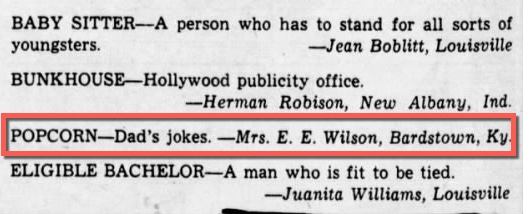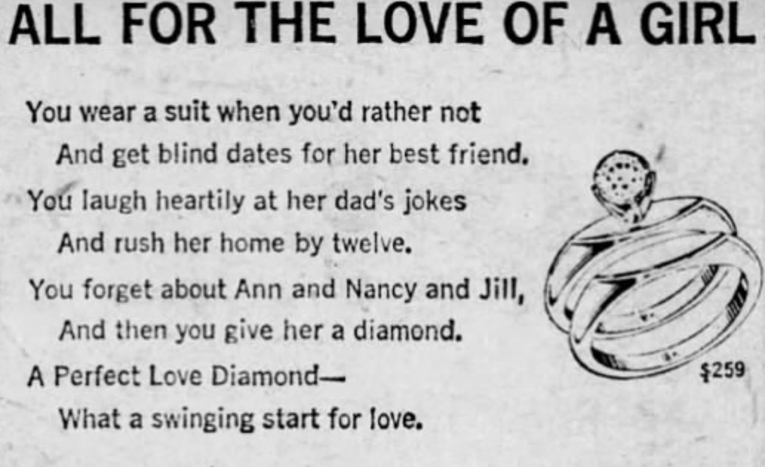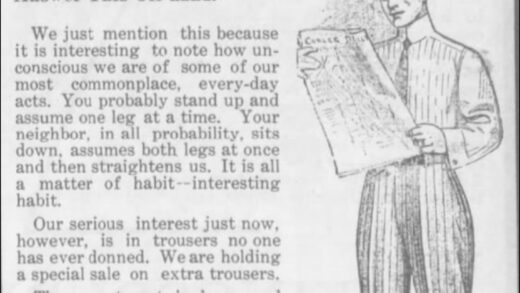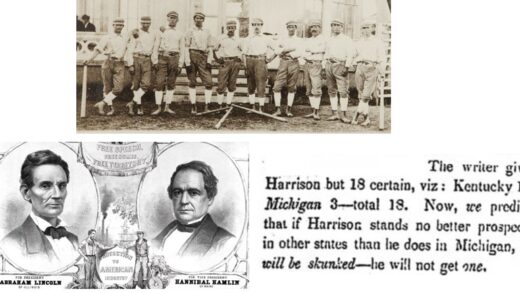My father, Norman Liss, was a terrible punster.
“Terrible,” when applied to puns, can have different meanings, depending on who you ask. To some, it’s a criticism. To others, it’s a compliment. To many, of both persuasions, it’s simply redundant; all puns are “terrible.”
I don’t know when it started, but from an early age I would regularly engage in spontaneous back-and-forth punning on a wide variety of themes with my dad. A random mention of any word might set it off.
Some consider the pun a subset of the “dad joke.” You might say that all puns are dad jokes, but not all dad jokes are puns. The Merriam-Webster Dictionary defines “dad joke” as
“a wholesome joke of the type said to be told by fathers with a punchline that is often an obvious or predictable pun or play on words and usually judged to be endearingly corny or unfunny.”
The phrase “dad joke” – as opposed to the less definitional “dad’s jokes” – didn’t achieve widespread use until the mid-2010s. (Merriam-Webster only added it to its dictionary in 2019.)
But while the phrase is relatively recent, the idea of the “dad joke” has been around for a long time. A line that appeared in newspapers as early as 1949 (and many times since) defines “Popcorn” as “Dad’s Jokes” – a pun of a dad joke if ever there was one.

The idea of dad’s jokes as something to be laughed at strategically has been around for almost as long. In 1952, this bon mot appeared in several newspaper columns around the U.S:

The concept made it into comic strips ….
!["He [girl's date] must be serious about you." "I'll say. Listen to him knocking himself out laughing at Dad's corny jokes."](http://kenliss.com/wp-content/uploads/2021/06/Etta-Kett.png)

and advertisements ….

The earliest known use of the actual phrase “dad joke” in the current sense was in a 1987 Father’s Day column – “Don’t ban the ‘Dad’ jokes; preserve and revere them” — by Jim Kalbaugh, editor/publisher of the Gettysburg Times in Pennsylvania.

Citing their special draw and durability, Kalbaugh wrote:
“They not only last for a whole generation, but they are passed on to those offspring who become Dads, and they pass them on to a succeeding generation. Somehow they always work, in their own way…It’s one of the great traditions of fatherhood worth preserving.”
The phrase didn’t really take off in columns and news stories for another couple of decades. It did, however, appear in another part of the newspaper with increasing frequency in the 1990s and early 2000s. Echoing Kalbaugh’s affectionate attitude, it showed up in paid newspaper death notices written by family members. For example:
- “He told corny jokes…The family label for a really corny joke or pun was to call it a ‘Dad Joke.’” (Philadelphia Daily News)
- “His family will miss his ‘Dad Jokes and Group Hugs’” (Albuquerque Journal)
- “[His] sense of humor led the family to create a leather-bound book of bad dad jokes.” (Chicago Tribune)
- “[He] is fondly remembered for his quick wit, charm, and ability to entertain family and friends with his ‘Dad Jokes.’” (Detroit Free Press)
- “He was always known for his ‘dad jokes’ – never made much sense, but they made him laugh.” (Mason City [IA] Globe-Gazette)
But, said with affection or not, I think it is time to retire the phrase “dad joke.” Not because they’re bad or terrible or hackneyed or passé, but because they’re not solely the province of dads, or of men. And, as evidence, I present my own grown daughters.
My older daughter, Emma, left Boston for the Bay Area five years ago. Not long after settling in she started competing in the bimonthly Bay Area Pun-Off, a punning competition like those held in several cities. (Boston, unfortunately, is not one of them.) The competitors are proof that there is no gender to punning (or “dad jokes”).
Two years ago, I flew out there to compete with and against her. She won that night (for the first, but not the last, time), while I was awarded a prize for overall Excellence in Punning. And my younger daughter, Naomi, whose childhood groaning about my dad jokes was both longer and louder than her sister’s, has become a “terrible” punster herself.
So, if the phrase “dad joke” does live on, may it be like “dialing “a phone number, “cutting and pasting” text, or “taping” a TV show, an anachronism whose origin slowly fades into obscurity. I just won’t go father than that.



